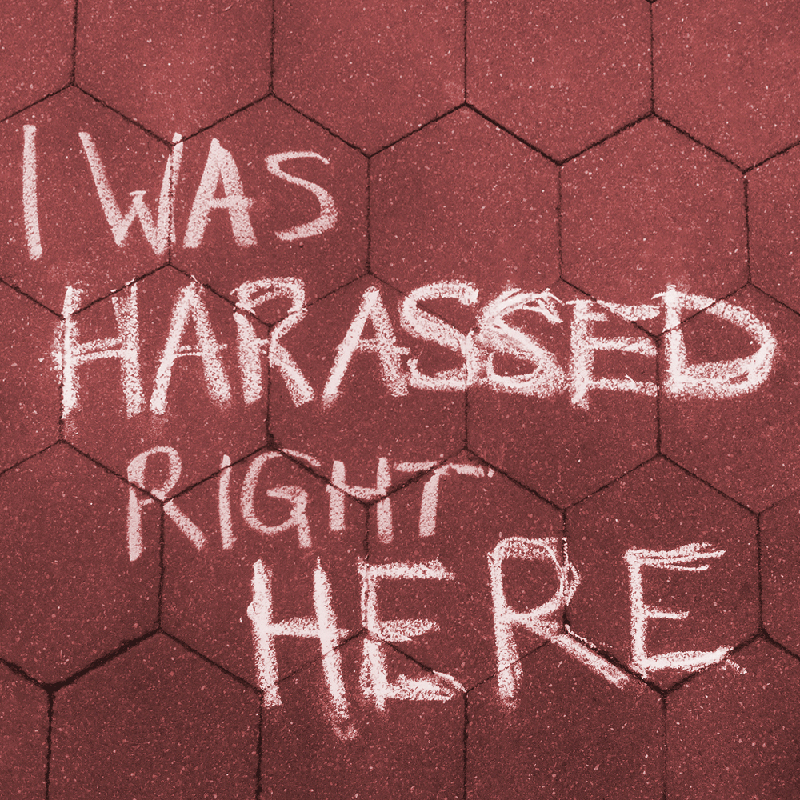
It seems that in every romantic movie we find couples out and about having fun. They’re going on elaborate dates, enjoying the city, seeing monuments and restaurants in fun montages all set to pop music. We also see strong, independent female characters move confidently through the busiest city streets. Not once do you see them being jeered at or cat called. Recently, street harassment as been a hot button topic as many women deal with it every day and unfortunately for couples in the LGBT community, street harassment can be even more hurtful. So what exactly is street harassment? How do you prevent it?
“If your flirting strategy is indistinguishable from harassment, it’s not everyone else that’s the problem.”
― John Scalzi
Street harassment can take on many forms including but not limited to; leering, honking, whistling, sexist or homophobic comments, vulgar gestures, sexually explicit comments, kissing noises, being followed, path blocked, sexual touching or grabbing, target of public masturbation and assault. In essence, if you feel uncomfortable by what somebody is doing or conveying to you then they are harassing you. You are allowed to defend yourself. You never, in anyway, have to accept this no matter how common it might be in our society. The idea is to stop harassment safely and prevent it from happening in the future.
Unfortunately there is no universally accepted way to stop every street harasser but I’ll give you some of my best tips. The idea is not to be violent (if they are touching you then self defense is OBVIOUSLY okay) and to make sure you’re not responding to what they’re saying.
The first step is to establish the correct body language for the situation. You want to convey a message through strength. Stand tall, makes sure you’re planted or going at a steady pace and look them directly in the eye when you say what you need to say.
In a situation like this you may be incredibly nervous, anxious and scared. Try to do your very best in maintaining a calm composure. Remember to breathe! If you get angry do not swear or fly off the handle. This only causes further problems.
In no way do you have to apologize for what the other person is doing or saying to you. There is no need to say sorry (even Canadians have to refrain). Just be assertive, get your point across in a strong, calm manner and then continue on with what you were doing.
Many time street harassers are going to want to respond to what you said. This is not an argument or debate and they don’t need any more attention then you have already given to them. Look them in the eye when say what you need to say. If they say anything else you can stay silent, begin to walk away or repeat what you had already said to them.
Once you are in your stance you’re going to want to decide what to say. However, depending on the situation you have the choice to not say anything but to look them in the eye as you continue what you were doing and make sure they got the message that they are wrong because they are wrong. Some examples of things you could say:
- DO NOT statement. “Do not whistle at me.” “Do not touch me.” “Do not cat call me. That is harassment.” You may clearly identify the harassment and let them know that it is, in fact, harassment. Go with the “DO NOT_____ That is (sexual) harassment!”
- Tell them what you want from them. “Go over there” “Move other there” “Stop touching me”
- You can stand up for everyone. “Stop sexually harassing women” “Stop sexually harassing gay couples”
- If you are in a public place combine a statement to call them out. “Man in the Nike hat please stop touching me that is sexual harassment”
- My personal favorite is the philosophy technique “Please enlighten me on why you think you’re allowed to put your hand on me like that/say something like that to me”
- If harassers are in a car and there is not much you can say, You do have the ability to write down their license plate to report them later on. The only downfall is unfortunately some city and state governments don’t like to take this harassment seriously.
- Start asking them interview questions about their harassment. “So, on average how many women do you sexually harass a day?” “About what time do you usually sexually harass a person?” etc.
The most important thing is you don’t have to worry about being a jerk. If somebody is invading your personal space and making you feel uncomfortable, stand up for yourself. Education, communication and perseverance are the keys to ending harassment. The world isn’t going to change without…well, change.

